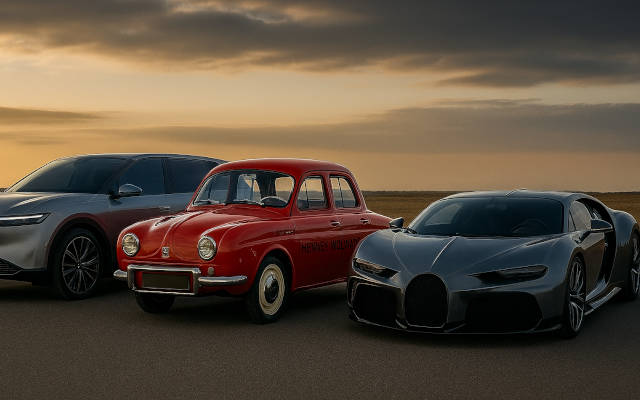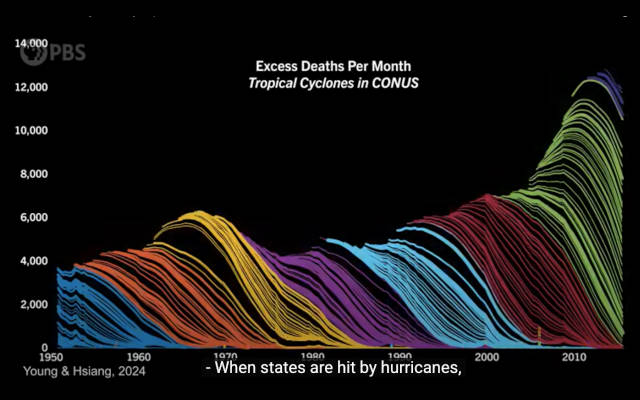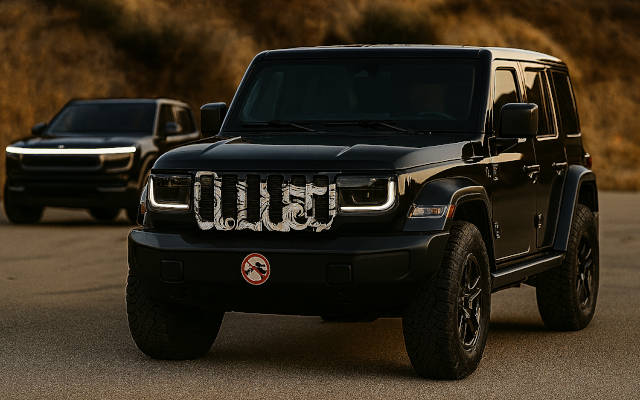 EDITOR'S PICK
EDITOR'S PICK
When Speed Sucks - The Quiet History of Vacuum Cleaner EVs
01 Oct 2025 | Synopsis
 Three vacuum cleaner companies—Henney, Dyson, and Dreame—each tried to build electric vehicles. Henney's Kilowatt (1959) was a 60-mile-range utility EV built on Renault gliders. Dyson's N526 SUV promised 600 miles and luxury tech but was canceled after £500M due to cost. Dreame now aims to launch a Bugatti-style hypercar by 2027. All pursued innovation through motor expertise, but only Dreame's dream still lives.
Three vacuum cleaner companies—Henney, Dyson, and Dreame—each tried to build electric vehicles. Henney's Kilowatt (1959) was a 60-mile-range utility EV built on Renault gliders. Dyson's N526 SUV promised 600 miles and luxury tech but was canceled after £500M due to cost. Dreame now aims to launch a Bugatti-style hypercar by 2027. All pursued innovation through motor expertise, but only Dreame's dream still lives.Fossil Fuels and Fossilized Minds
30 Sep 2025 | Synopsis
 Republican Party's zealous defense of fossil fuels (like coal) and opposition to clean energy are deeply irrational and driven by "fossilized stupidity" and political tribalism, not economic sense or scientific reality. Nobel Prize-winning economist Paul Krugman asserts that this stance ignores the rapid technological progress making renewables competitive and the urgent need to address climate change, effectively embracing a "death wish" for the planet to appease special interests.
Republican Party's zealous defense of fossil fuels (like coal) and opposition to clean energy are deeply irrational and driven by "fossilized stupidity" and political tribalism, not economic sense or scientific reality. Nobel Prize-winning economist Paul Krugman asserts that this stance ignores the rapid technological progress making renewables competitive and the urgent need to address climate change, effectively embracing a "death wish" for the planet to appease special interests.Did Scientists Just Figure Out Why People Die A DECADE Earlier in the Southeast US?
30 Sep 2025 | Synopsis
 A new study, entitled "Mortality caused by tropical cyclones in the United States" and published in Nature, reveals that excess deaths in the Southeastern U.S. are linked not to disasters themselves, but to long-term economic and health impacts from repeated exposure to climate shocks. New research shows these "invisible deaths" stem from systemic vulnerability, poor infrastructure, and underinvestment in recovery, to date taking more lives than all America's wars combined.
A new study, entitled "Mortality caused by tropical cyclones in the United States" and published in Nature, reveals that excess deaths in the Southeastern U.S. are linked not to disasters themselves, but to long-term economic and health impacts from repeated exposure to climate shocks. New research shows these "invisible deaths" stem from systemic vulnerability, poor infrastructure, and underinvestment in recovery, to date taking more lives than all America's wars combined.Jeep's Recon Moab EV Is Finally Shedding Its Camouflage
30 Sep 2025 | Synopsis
 Jeep's Recon Moab EV emerges as an electric Rubicon successor with removable doors and serious off-road capability, priced at $60k-$80k and range up 300 miles. But Stellantis is pulling back on EV launches due to weak demand and expiring tax credits. Meanwhile, Rivian's R2 arrives in 2026 at $45k, offering adventure capability with better value. The Recon's fate depends less on its trail prowess and more on whether Jeep commits to production in an uncertain market.
Jeep's Recon Moab EV emerges as an electric Rubicon successor with removable doors and serious off-road capability, priced at $60k-$80k and range up 300 miles. But Stellantis is pulling back on EV launches due to weak demand and expiring tax credits. Meanwhile, Rivian's R2 arrives in 2026 at $45k, offering adventure capability with better value. The Recon's fate depends less on its trail prowess and more on whether Jeep commits to production in an uncertain market.Net Zero, Information Warfare, and the Economic Realities Behind the Rhetoric
30 Sep 2025 | Synopsis
 A critique of The Critic's claim that net zero weakens the West, arguing it overlooks the economic fragility of China, Russia, Iran, and North Korea. While information warfare is real, these regimes face internal crises that limit their strategic reach. Western climate policy, though imperfect, is grounded in sound science and democratic debate. Net zero is not weakness - it's a test of resilience, coherence, and long-term leadership.
A critique of The Critic's claim that net zero weakens the West, arguing it overlooks the economic fragility of China, Russia, Iran, and North Korea. While information warfare is real, these regimes face internal crises that limit their strategic reach. Western climate policy, though imperfect, is grounded in sound science and democratic debate. Net zero is not weakness - it's a test of resilience, coherence, and long-term leadership.
 Si Exclusive
Si Exclusive
Hydrogen's Flight Path: Fuel Cells, Turbines, and the Economics of Clean Aviation
10 Oct 2025 |  Aviation is shifting from Jet A to four fuel systems: electricity, hydrogen (fuel cell and combustion), SAF, and petroleum. Fuel cells suit short-haul aircraft; hydrogen combustion may power long-range jets. SAF bridges legacy fleets. Hydrogen costs - $5-$7/kg today, possibly $2/kg by 2040 - impact ticket prices and infrastructure decisions. Airport authorities, airlines, and governments will share deployment costs. Each fuel has distinct environmental pros and cons shaping aviation's net-zero future.
Aviation is shifting from Jet A to four fuel systems: electricity, hydrogen (fuel cell and combustion), SAF, and petroleum. Fuel cells suit short-haul aircraft; hydrogen combustion may power long-range jets. SAF bridges legacy fleets. Hydrogen costs - $5-$7/kg today, possibly $2/kg by 2040 - impact ticket prices and infrastructure decisions. Airport authorities, airlines, and governments will share deployment costs. Each fuel has distinct environmental pros and cons shaping aviation's net-zero future.
 10 Oct 2025 23:28:19 UTC |
RECENT PODCASTS
BYD Soars - Cheaper Tesla Models - The Bolt is Back - Rivian
SEARCH RSSTREAM
 53 New Postings In Past 24 Hours
53 New Postings In Past 24 Hours
Category:finance
Region:NoAmerica
Date:10 Oct 2025
Category:policy
Region:NoAmerica
Date:10 Oct 2025
Category:mobility
Region:AsiaPacific
Date:10 Oct 2025
Category:mobility
Region:AsiaPacific
Date:10 Oct 2025
Category:finance
Region:NoAmerica
Date:10 Oct 2025
Category:finance
Region:IndoAsia
Date:10 Oct 2025
Category:energy
Region:Global
Date:10 Oct 2025
Category:energy
Region:NoAmerica
Date:10 Oct 2025
Category:finance
Region:NoAmerica
Date:10 Oct 2025
Category:finance
Region:Global
Date:10 Oct 2025